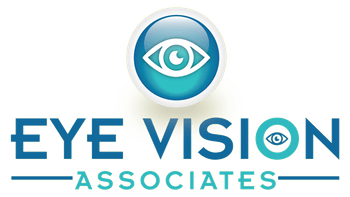 Does your child or teen complain of frequent headaches or dizzy spells? Are they falling behind academically, missing key plays on the sports field or feeling uncomfortable in social situations? The problem could be binocular vision dysfunction (BVD), the eyes’ inability to work together as a team because they’re not aligned.
Does your child or teen complain of frequent headaches or dizzy spells? Are they falling behind academically, missing key plays on the sports field or feeling uncomfortable in social situations? The problem could be binocular vision dysfunction (BVD), the eyes’ inability to work together as a team because they’re not aligned.
Even a subtle misalignment can interfere with your child’s academic performance, social life and self-confidence. Effective BVD treatment can transform your child’s vision and life.
At Eye Vision Associates in Nesconset, we can help.
What Is Binocular Vision Dysfunction (BVD)?
Binocular vision dysfunction is an eye condition that occurs when one's eyes aren’t aligned. In order to send a single, clear image to the brain, both eyes must be in the correct alignment, allowing them to work together as a team. Otherwise, they produce two distinct images that the brain can’t fully merge. This can lead to blurred and double vision and other debilitating symptoms.
If you have BVD, your eye muscles have to work harder to compensate for their misalignment, resulting in some or all of the following symptoms:
- Pain in the eyes, neck or head
- Difficulty with balance and a tendency to fall
- Poor depth perception
- Eye-hand coordination problems
- Reading problems – skipping lines, difficulty focusing and concentrating
- Vision disruption – double or blurred vision and light sensitivity
- Emotional upset – frustration, low self-confidence, reluctance to engage in social activities (such as sports) that require sharp vision.
What’s the Treatment for BVD?
Micro-prism glasses manipulate the light entering the eyes, allowing the brain to unite the images the eyes are sending into one clear image. Your child will no longer need to strain their eye muscles to force their eyes into alignment. The lenses do all the work.
Your eye doctor may also recommend vision therapy, a customized program to strengthen your visual skills and improve your visual function. Vision therapy boosts the communication between the eyes and the brain.
Many patients undergoing these therapies report an immediate improvement in BVD symptoms. Others may gradually begin to see more clearly, and soon dizziness and headaches will lessen or go away completely.
Do you suspect your child may have BVD? Schedule an eye exam at Eye Vision Associates in Nesconset so our eye doctor can assess their eye alignment and provide the best treatment for the condition.
Our practice serves patients from Nesconset, Ronkonkoma, Lake Grove, and Centereach & Hauppauge, New York and surrounding communities.
Q: How Do I Know If I Have BVD?
- A: BVD affects not only kids but adults, too. In addition to headaches and dizziness, common signs include:
- - Nausea
- Motion sickness
- Poor coordination
- Difficulty reading
- Depth perception problems
- Eye pain
Q: Can a Brain Injury Cause BVD?
- A: Yes. A fall, collision or stroke can damage the neural pathways that facilitate communication between the brain and the eyes. In fact, 90% of people with a traumatic brain injury (TBI) experience vision disruptions, some of which include BVD.
